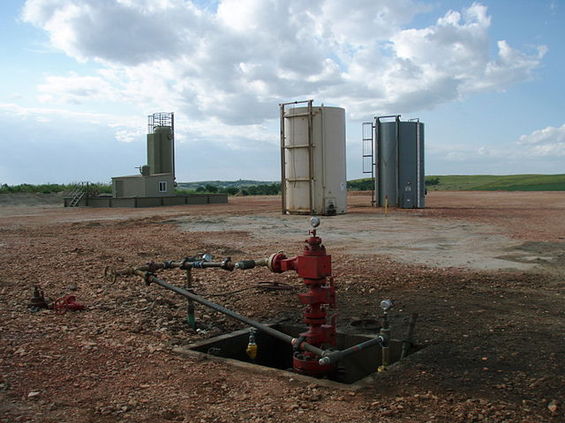Texas Drillers Lead the Nation in Pumping Benzene into Earth, Which Is Not Good
By Amy SilversteinPublished Thu., Oct. 23 2014 at 9:24 AM
Slip through the right series of loopholes and it can be perfectly legal to inject benzene into oil wells. Naturally, drillers in Texas figured this out thousands of gallons of benzene ago.
Joshua Doubek
Using data disclosed by the oil industry, a new report calculates all the benzene that is legally going into wells across the country. There's a lot, it turns out, and it's mostly in Texas.
The winner of the benzene race is San Antonio-based BlackBrush O&G, which injected a fluid containing as much as 48,000 gallons of benzene into a well in Dimmit County. In second place is Discovery Operating Services, a company that pumped 1,000 gallons of benzene into 11 wells across Midland and Upton counties.
The report is authored by Eric Schaeffer, who served as director of the Environmental Protection Agency's enforcement division before resigning in protest in 2002 and forming the Environmental Integrity Project activism group.
Benzene is a likely carcinogen, so while accidents can and do happen anywhere, the stakes are higher when there's a cancer-causer involved. As the Environmental Integrity Project report argues, "even a small leak into a drinking water aquifer nearer the surface can be catastrophic."
We already knew that Texas leads the nation in illegally injecting diesel fluid into fracking wells. Diesel-based fracking fluid is illegal without a permit because it's supposedly more toxic.
See also: Texas Leads the Nation in Illegally Injecting Diesel into Wells, Which Is Not a Good Thing
But it turns out that some of the legal, non-diesel fluids on the market are far worse. Using companies' material safety data sheets, the Environmental Integrity Project found that there are 21 non-diesel fluids on the market than contain "much higher concentrations" of benzene, as well as xylene and toluene, which are also bad for you.
The companies that supply the fracking fluid are, in theory, the ones that should know about the high benzene content. The Environmental Integrity Project identified Texas Midstream Transport and Halliburton as two major suppliers.
Of course, further regulation would kill jobs, every industry ever has argued. A counter-argument for that is the recent peer-reviewed study described by the Centers for Disease Control that says that fracking workers charged with gauging tanks face "an occupational exposure risk during certain flowback work" due to benzene.